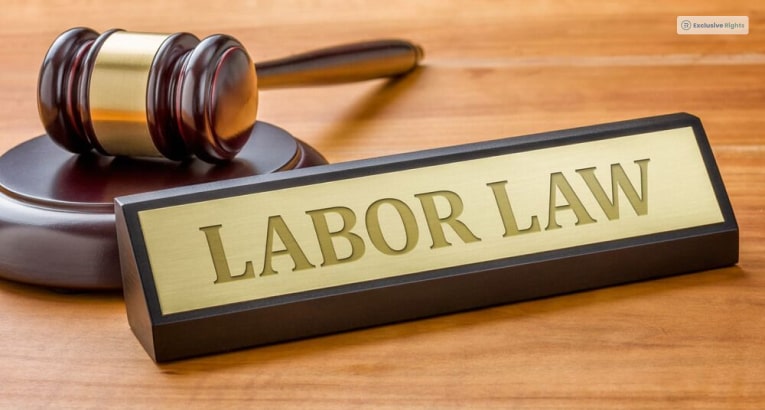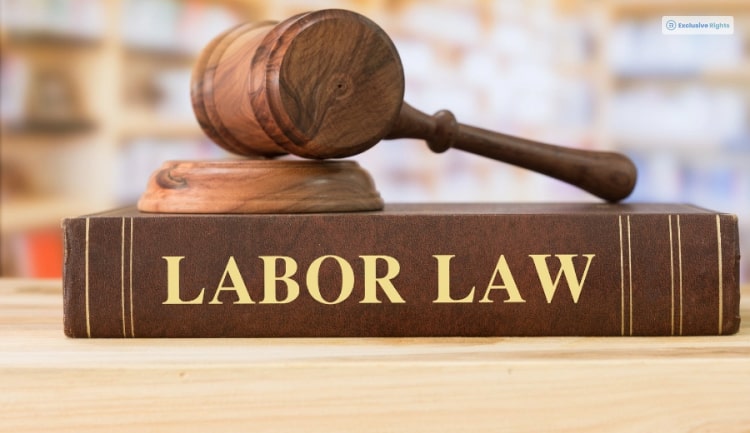
Table Of Contents
- What Are Labor Laws In The US?
- The Fair Labor Standards Act
- Minimum Wage: The Income Foundation
- Family and Medical Leave Act (FMLA): Balancing Work and Life
- Occupational Safety and Health Administration
- Employment Retirement Income Security Act (ERISA): Safeguarding Your Benefits
- National Labor Relations Act (NLRA): Empowering Unions and Collective Bargaining
- State Labor Laws: Extra Layers of Protection
- Which Act Provided Child Labor Laws In The US?
- What Are The Labor Laws For Salaried Employees?
- Exempt vs. Non-Exempt Status: The Wage Foundation
- Minimum Salary Requirements: A Livable Wage
- Overtime Pay: Earning Extra for Extra Hours
- Breaks and Rest Periods: Recharge for Productivity
- Work Hours and Scheduling: Maintaining Work-Life Balance
- Workplace Discrimination: Equal Opportunity
- Family and Medical Leave: Balancing Life and Work
- Employment Benefits: Securing Your Future
- Occupational Safety: A Safe Workplace
- State-Specific Laws: Additional Protections
- Final Words…
A Comprehensive Guide To Labor Laws In The US
Labor laws play an important role in the overall hiring and firing of our country. These laws aren’t just a bunch of rules, but they are the flagbearers of shaping up the workplace.
Labor laws deal with the rights of the workers and ensure that they’re playing in a fair field with both employers and employees. It helps you to understand how to or how not to interact in a workplace.
In this blog, we will discuss in detail the intricacies of US labor laws and how you can use them to benefit yourself.
What Are Labor Laws In The US?

The US Labor laws deal with the rights and duties of the employees, employers, and labor unions in the country. The main objective is to remedy any case of inequality taking place in the bargaining of power between the employees and the employers.
Here are some basic aspects of the labor laws in the USA you should know about:
The Fair Labor Standards Act
This is primarily a US law that safeguards workers from being victims of unfair pay practices. The FLSA sets out labor laws based on minimum wages and other requirements of overtime pay and limits on child labor laws.
The FLSA was passed in 1938 and has undergone numerous changes over the past few years so that the employees and the employers understand the overall wide array of regulations for people who are employed.
Minimum Wage: The Income Foundation
This is an important subset of US labor law which is apparently a mindful amalgamation of both state and local laws. The first idea of minimum wage was introduced in the National Industrial Recovery Act of 1933. This was signed by President Roosevelt during that time.
However, later on, it was deemed to be unconstitutional. Later on, it was established that employers have to pay the highest minimum wage according to local laws. This emerged way back at the end of the 19th century as an objective to end sweatshops that developed because of the weakening effects of industrialization.
Family and Medical Leave Act (FMLA): Balancing Work and Life
This is also one of the most important labor laws in the US that requires employers to provide employees with unpaid time off for severe health issues. Reasons like pregnancy, adoption, family, and personal illness are fine examples of what falls under this category.
The Act even offers you a window for insurance coverage and job protection while you are on leave. It helps families with ample time and resources to deal with all kinds of family emergencies and guide employers on the correct path.
Occupational Safety and Health Administration
As popularly known as OSHA, this is a regulatory agency comprising federal visitorial powers to examine and inspect workplaces. The US Congress established this with the help of President Nixon in December, 29,1970. The agency is also well-known for a variety of statutes and regulations based on the whistleblower.
Employment Retirement Income Security Act (ERISA): Safeguarding Your Benefits

ERISA is your safeguard for employee benefits, including retirement plans and health insurance. This federal law regulates how your employer manages these benefit plans, ensuring the security of your hard-earned benefits.
National Labor Relations Act (NLRA): Empowering Unions and Collective Bargaining
The NLRA is your ticket to forming or joining a labor union and collectively bargaining with your employer. It empowers you and your fellow workers to negotiate for better working conditions, wages, and benefits.
State Labor Laws: Extra Layers of Protection
Beyond federal labor laws, each state can have its own set of labor regulations, which can add another layer of protection or specific requirements for workers.
Which Act Provided Child Labor Laws In The US?

The Child labor laws in the US play an important role in understanding the employment and the welfare of the children who are employed and working in the United States. This caters to safeguard the rights of the child laborers and protects them from any sort of employment abuse.
The Child labor laws are specified under the FLSA of 1938 that came into force under the administration of Franklin D. Roosevelt. Child labor laws also play a crucial role in protecting the educational opportunities of the youth and also prohibit their overall employment in jobs by looking forward to their health and safety.
There is a parent-child labor law in the US which again varies depending upon the state laws. Each state even consists of certain minimum requirements about the age a child might start working and other aspects as well.
What Are The Labor Laws For Salaried Employees?

Adult salaried employees are also bound by certain labor laws of the US. These labor laws help you to govern your rights and protect you from any shortcomings. They ensure that your hard work is well rewarded and your employment conditions are looked after in a just manner. Here are some intricacies of labor law that you should keep in mind:
Exempt vs. Non-Exempt Status: The Wage Foundation
The first thing to understand as a salaried employee is whether you’re classified as exempt or non-exempt under the Fair Labor Standards Act (FLSA). Exempt employees are not entitled to overtime pay, while non-exempt employees are. Make sure you’re correctly classified.
Minimum Salary Requirements: A Livable Wage
Under the FLSA, salaried employees must be paid a minimum salary to qualify for exempt status. The exact minimum salary requirement can change, so it’s essential to stay up to date with current regulations.
Overtime Pay: Earning Extra for Extra Hours
As a salaried employee, if you’re classified as non-exempt, you’re entitled to overtime pay. This means you should be compensated at a rate of at least 1.5 times your regular hourly wage for each hour worked beyond the standard 40-hour workweek.
Breaks and Rest Periods: Recharge for Productivity
Labor laws for salaried employees include regulations on breaks and rest periods. It’s vital to know your rights regarding lunch breaks, rest breaks, and whether you’re entitled to paid or unpaid meal periods.
Work Hours and Scheduling: Maintaining Work-Life Balance
While salaried employees often enjoy flexibility in their work hours, labor laws require employers to maintain reasonable scheduling practices and allow for work-life balance. You should not be overworked to the detriment of your personal life.
Workplace Discrimination: Equal Opportunity

Salaried employees, like all workers, are protected against discrimination based on factors such as race, sex, religion, and national origin. Labor laws ensure that you’re not subjected to unfair treatment or workplace harassment.
Family and Medical Leave: Balancing Life and Work
The Family and Medical Leave Act (FMLA) allows eligible salaried employees to take unpaid leave for family and medical reasons without risking job loss. Whether it’s welcoming a new child, caring for a loved one, or addressing your own health issues, the FMLA provides flexibility.
Employment Benefits: Securing Your Future
Salaried employees often have access to employment benefits like retirement plans and health insurance. The Employment Retirement Income Security Act (ERISA) safeguards your rights by regulating how your employer manages these plans.
Occupational Safety: A Safe Workplace
The Occupational Safety and Health Administration (OSHA) sets and enforces safety standards to protect all workers, including salaried employees. These regulations ensure your safety in the workplace and provide avenues for reporting unsafe conditions.
State-Specific Laws: Additional Protections
Beyond federal labor laws, remember that your state may have its own labor regulations that add extra layers of protection or specific requirements for salaried employees. Familiarize yourself with your state’s labor laws to ensure you’re fully informed.
Final Words…
Labor laws in the US act as a vital shield that helps safeguard your rights as an employee. By understanding its legal complexities, you easily search for your preferred job in the market with confidence. You’ll also know that your work is protected and you’re liable to get fair compensation as well.
We hope you found this blog to be informative and helpful. Let us know if we missed out on anything.
Read Also:









